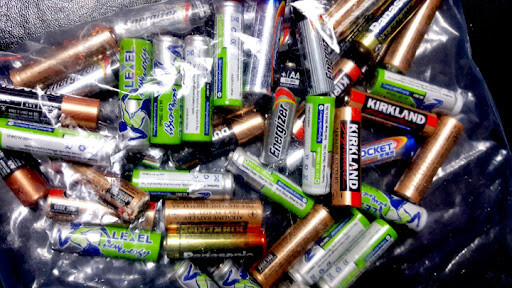
A warning has been issued that spent batteries, if discarded without proper treatment, can pose a serious threat to human health. Ovidio Espínola, a 25-year expert from the Chemical Substances Department of the Paraguayan Ministry of Environment (formerly Seam), emphasized that the hazardous substances contained in spent batteries can have a fatal impact on the nervous system.
Two Types of Spent Batteries and the Importance of Recycling
According to expert Espínola, batteries are broadly divided into two types: non-rechargeable primary batteries (common dry cells) and rechargeable secondary batteries. He explained that lithium-ion batteries, especially those used in mobile phones and computers, have high recycling value and are in high demand in the international market. "These batteries must be separated and managed differently depending on their recyclability. Recyclable batteries have significant value as resources," he stated.
On the other hand, for batteries that are difficult to recycle, hazardous substances like mercury and lead can be recovered, but this process incurs very high costs. Espínola added, "From a manufacturer's perspective, it is much more economical to purchase new metals from mines, so recycling these batteries is not economically viable." Therefore, non-recyclable batteries must be sent to facilities specializing in heavy metal treatment.
Risks of Hazardous Substances in Spent Batteries: Neurotoxicity and Bioaccumulation
Expert Espínola warned that heavy metals such as mercury, lead, and cadmium contained within spent batteries cause neurotoxicity in the human body. "These heavy metals are highly bioaccumulative, meaning that once absorbed into the body, they are not excreted and accumulate in small amounts. Once a certain concentration is reached, they can cause neurological problems."
For pregnant women in particular, these harmful substances can be transmitted to the fetus through the placenta, posing an even greater danger. Children born may suffer from various nervous system-related disorders, including neurological problems, learning disabilities, hyperactivity, and impaired motor skills. Due to this severity, regulations are strictly enforced worldwide to limit heavy metal content in battery manufacturing. In the past, batteries contained large amounts of these heavy metals, but now legal minimum content standards are specified. Although Paraguay does not manufacture batteries, the Ministry of Industry and Commerce (MIC) strictly regulates the heavy metal content (mercury, cadmium, manganese) of imported batteries.
Laws Related to Spent Batteries and Penalties for Violation
Article 7 of Paraguay's Law 5882 prohibits exceeding specific heavy metal content standards in the manufacturing, assembly, import, transportation, storage, and commercialization of household batteries. Furthermore, Article 8 obliges manufacturers and sellers to "provide appropriate containers for collecting used batteries at the point of sale (P.O.S.) to consumers."
Violations of these regulations can result in severe penalties, including fines ranging from 50 to 1,000 times the daily minimum wage, product confiscation, permanent registration cancellation, and a ban on battery commercialization. These measures reflect the serious impact that spent batteries have on the environment and human health.
The Future of Spent Battery Disposal and Individual Responsibility
The issue of spent batteries is a critical matter directly linked to environmental pollution and human health. Recyclable batteries should be actively separated and discharged from a resource circulation perspective, and batteries that are difficult to recycle must be safely disposed of through specialized treatment facilities. In addition to responsible management by governments and corporations, the proper waste separation habits of individual citizens are paramount. Our small actions will greatly contribute to protecting the health of future generations and the global environment.
[Copyright (c) Global Economic Times. All Rights Reserved.]






























